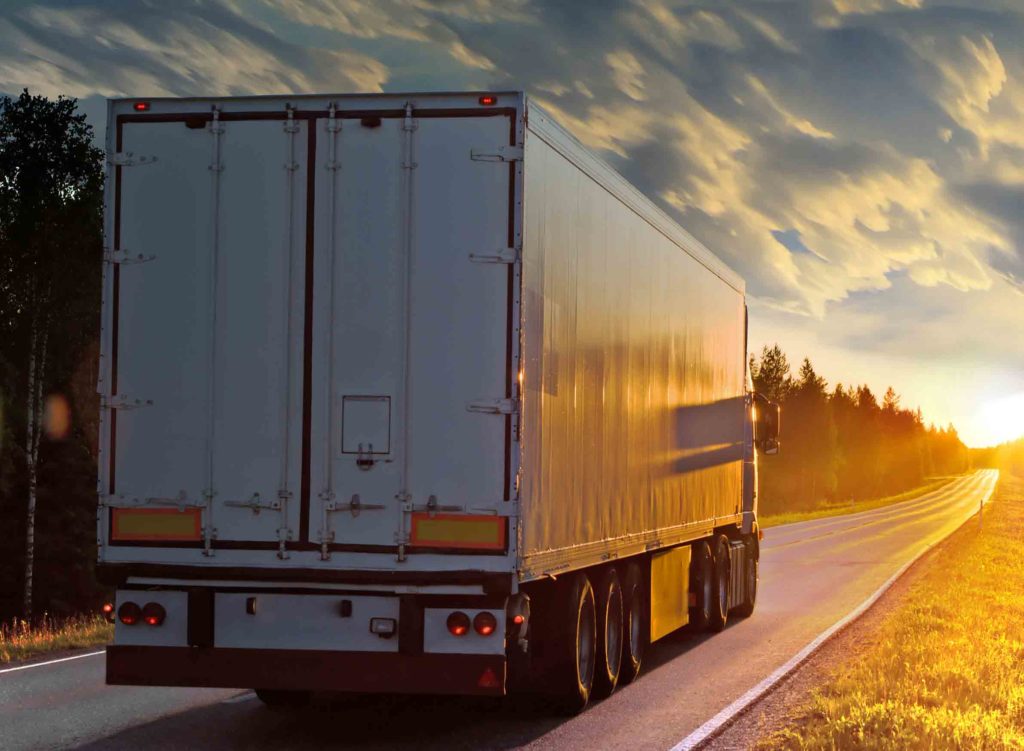The items being shipped have shifted from consumer items like beauty products to home goods and health essentials like food, cleaning supplies, and other necessities during a viral outbreak. These supply chains are vital to keeping people inside and containing the spread of COVID-19, but the challenge facing truckers is the federal restrictions and state driven measures applying to all citizens. Industry groups like the American Trucking Associations are appealing to the president to exempt truckers from travel restrictions and other health measures in order to create some stability in the chain.

COVID-19 Outbreak Safety Measures
Health focused initiatives in trucking during a pandemic include shifting from paper freight bills to online bills, closing rest stops, closing public restrooms, and offering take-out only at restaurants. A huge disruptor in these measures is the limited parking that comes from the closed rest stops along busy trucking routes.
Are Truckers Being Affected During the COVID-19 Outbreak?
Truckers face hesitancy to take loads to states with the biggest outbreaks because of questions of carrying contagion along with their goods when they enter other states. These concerns come alongside an increased demand for trucking and an increase in the rates that have been down for the past year. Industry groups will continue appealing to leadership for exemptions to truckers during this pandemic, and some truck stop chains are listening to their concerns. Truck stop chains offering showers, restrooms, fuel, and food are invaluable to professional drivers. Having these areas remain open to aid in the supply chain of health supplies and food is crucial to the transportation industry. Some rest stops are reopening, but that does not shake the fear of the disruption in the trucking industry.

What Can Truckers Do to Keep Hauling During the COVID-19 Outbreak?
Maintain social distancing practices of at least 6 feet between other people. Wash your hands frequently and for 20 seconds at a time. Call rest stops ahead of time to ensure they will be open and hygienically maintained for your own safety. Plan your routes according to the travel restrictions and safety measures taken both statewide and federally. Stay healthy and rested.
Trucking During COVID-19
Keeping supply chains intact during a viral pandemic is vital to the health and safety of all Americans. Truckers are on the front lines of the response team to keeping the country and the world supplied with food and health essentials. While rates are higher this month than previous rates, truckers face the extra instability within their industry due to stricter health and safety regulations. Keeping trucks on the road is of great importance despite the disruption in the industry at the time.
Trucking Factoring to Stay on the Road
If having enough money to afford fuel and repair costs is a concern to truckers, freight bill factoring can help. Eagle Business Credit offers trucking factoring with rates as low as 1.95% to keep truckers focused on hauling rather than waiting for their money. Eagle offers free same-day funding, a 24/7 online portal to view your submitted freight bills, free load boards, month to month contracts, and a team of dedicated employees able to handle any questions or concerns even during the COVID-19 outbreak. We don’t want to make trucking any harder than it is. We free up your workload without any hidden fees or other obstacles to navigate. You haul the loads, and we fund your freight bills. It’s as simple as that.

Why You Should Thank the Truckers:
These are all things to keep in mind during the COVID-19 outbreak. Without truckers facing these obstacles and continuing to haul freight, the supply chain is disrupted. Grocery stores won’t be able to restock, and pharmacies will be without supplies. Next time you are in the grocery store, think of truckers when you see products on the shelves. It is in part because of them that we are able to persist through the measures containing the spread of COVID-19.

